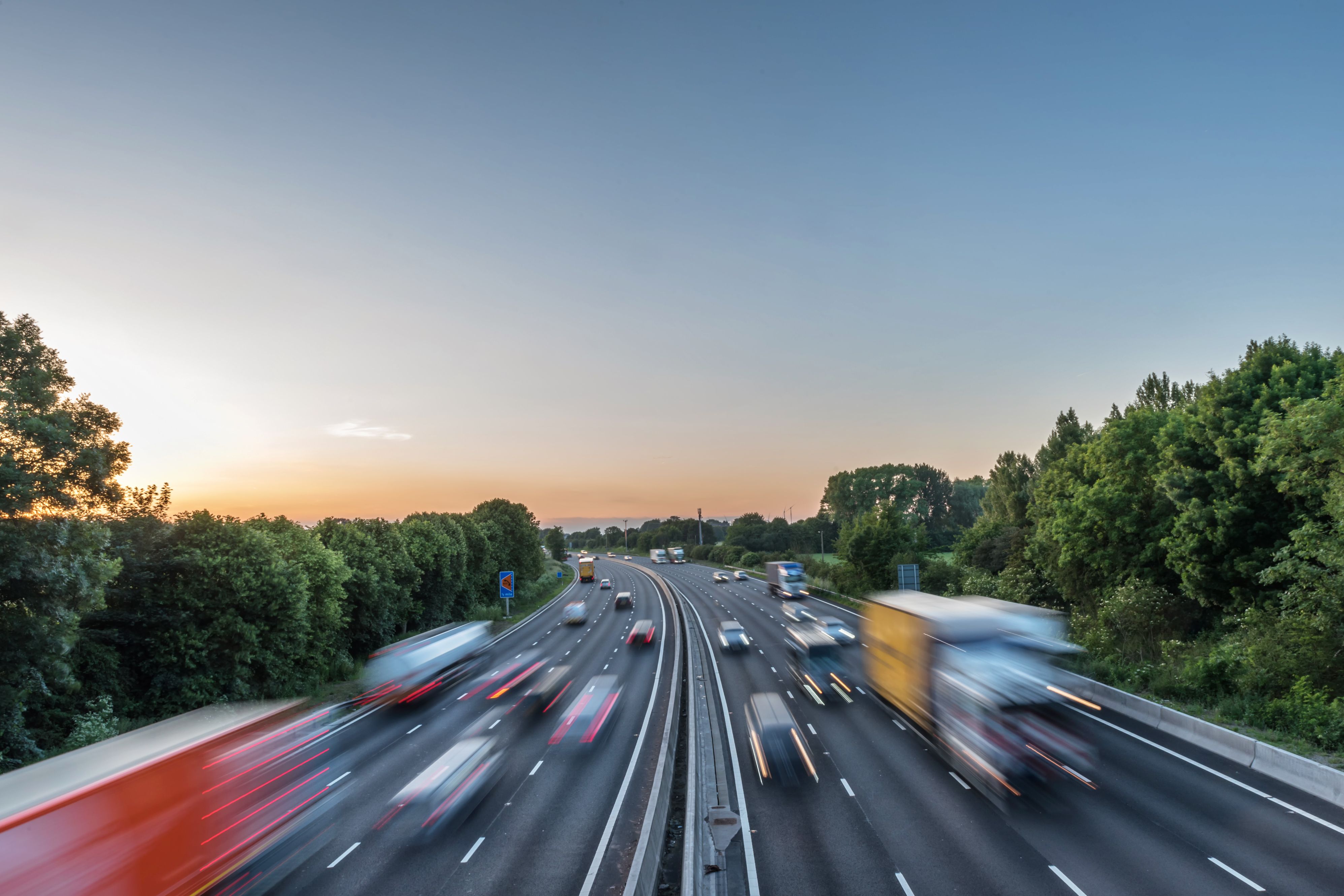
Miranda Blake
Hoe de logistieke sector kan zorgen voor veiligheid en gemak voor Europese vrachtwagenchauffeurs
Gemaakt: 08-01-2025
•
Bijgewerkt: 08-01-2025
Door nieuwe regelgeving in te voeren, technologie te gebruiken en zich in te zetten voor het welzijn van chauffeurs, kan de logistieke sector werken aan een veiligere toekomst voor vrachtwagenchauffeurs en tegelijkertijd het gemak bevorderen.
Maar hoe wordt dit allemaal precies in de praktijk gebracht? Lees verder om erachter te komen...
Bewustwording van gevaarlijke snelwegen in Europa
We hebben eerder onderzoek uitgevoerd dat licht wierp op de gevaarlijkste wegen in Europa, waarbij we landen zoals Bulgarije en Tsjechië aanwezen als landen met het hoogste gemiddelde aantal dodelijke slachtoffers per 10.000 mijl wegennet.
Deze analyse is van cruciaal belang om te begrijpen waar de risico's het grootst zijn en benadrukt de behoefte aan gerichte interventies om de veiligheid te verbeteren. Gewapend met deze cruciale informatie kunnen bestuurders zich beter voorbereiden op hun reizen en weloverwogen keuzes maken over hun routes en ruststops.
De rol van technologie in het verbeteren van de veiligheid
Intelligentie die wordt verkregen via innovaties zoals GPS-navigatiesystemen, real-time verkeersupdates en geavanceerde rijhulpsystemen (ADAS) is ook van cruciaal belang. Dergelijke technologische ontwikkelingen leveren niet alleen essentiële gegevens over de toestand van de wegen, maar helpen vrachtwagenchauffeurs ook om weloverwogen beslissingen te nemen over hun reizen. GPS-systemen kunnen bijvoorbeeld alternatieve routes voorstellen om mogelijke gevarenzones te vermijden, terwijl verkeersupdates waarschuwingen kunnen geven over vertragingen of ongelukken in het verschiet. Hierdoor zijn chauffeurs beter in staat om hun reizen te optimaliseren.
Bovendien bieden toepassingen zoals intruck hen toegang tot gedetailleerde informatie over vrachtwagenstops in heel Europa, zodat ze geschikte plaatsen kunnen vinden om te rusten - dit is vooral gunstig voor wie lange afstanden aflegt en regelmatig moet pauzeren om zich aan de wetgeving te houden, vermoeidheid tegen te gaan en geconcentreerd te blijven.
Het belang van kwaliteitsrust
In voorgaande jaren hadden veel chauffeurs geen andere keuze dan hun pauzes in hun cabine door te brengen vanwege een gebrek aan toegankelijke en betaalbare accommodatie - en dit resulteerde vaak in rust van slechte kwaliteit, wat nadelige gevolgen kan hebben voor hun gezondheid en veiligheid.
Er wordt veel meer nadruk gelegd op de mogelijkheid voor vrachtwagenchauffeurs om te ontspannen in geschikte accommodatie. Transportbedrijven moeten de verantwoordelijkheid nemen om hotelovernachtingen te regelen of gebruik te maken van speciale pauzevoorzieningen. Hoewel dit extra kosten met zich mee kan brengen, biedt het een kans om te investeren in het welzijn van het personeel, wat uiteindelijk leidt tot meer werktevredenheid en behoud van personeel.
Accommodatieoplossingen implementeren
Om aan de regelgeving te voldoen, de risico's van vermoeidheid te beperken en de algehele veiligheid van hun chauffeurs te verbeteren, kunnen wagenparkbeheerders de volgende benaderingen overwegen:
Het aangaan van partnerschappen met plaatselijke hotels of rustplaatsen kan ervoor zorgen dat chauffeurs toegang hebben tot een comfortabele plek om te ontspannen
Het gebruik van apps en online platforms** kan vrachtwagenchauffeurs helpen bij het vinden van overnachtingsmogelijkheden in de buurt, het stroomlijnen van het proces en het verbeteren van de algehele efficiëntie.
(https://prodsnapstorage.blob.core.windows.net/public-news/f87a3719-5ecf-484e-95fe-af096e48605d-Truck%20driver%20paying%20with%20SNAP.jpg)
Hoe SNAP vrachtwagenchauffeurs ondersteunt
SNAP is een doorbraak voor de sector en biedt digitale oplossingen waarbij veiligheid en gemak voorop staan. Vlootbedrijven en vrachtwagenchauffeurs hebben nu toegang tot een groeiend netwerk van diensten die zijn ontworpen om reizen soepeler en veiliger te maken.
Digitaal gemak
De kern van ons aanbod is onze digitale marktplaats, die verschillende aspecten stroomlijnt:
Betalingen: SNAP wordt in heel Europa elke 13 seconden gebruikt om te betalen voor diensten van rustplaatsen en zorgt ervoor dat vrachtwagenchauffeurs niet langer uit eigen zak hoeven te betalen en later de kosten hoeven te declareren.
Parkeren: intruck helpt bestuurders om parkeerplaatsen langs hun route te vinden en vooraf te reserveren, waarbij veel parkeerplaatsen zijn voorzien van verbeterde beveiligingsopties om de veiligheid te vergroten.
Gestroomlijnde diensten**: Via ons platform kunnen vrachtwagenchauffeurs betalen voor parkeren, wassen en andere diensten door alleen het kenteken van hun voertuig te gebruiken.
Veiligheid eerst
Dit blijft een topprioriteit voor ons. We hebben onlangs ons netwerk uitgebreid met locaties in Oostenrijk, Bulgarije, Tsjechië, Griekenland, Hongarije, Italië en Roemenië. Veel van deze locaties hebben een verbeterde veiligheidsinfrastructuur en voorzien in de kritieke behoefte aan veilig overnachten.
Bovendien hebben we een speciale afdeling, SNAP Access & Security, om op maat gemaakte oplossingen te bieden die terreinen beschermen tegen bedreigingen van vrachtcriminaliteit, waardoor de algehele veiligheid van chauffeurs en vracht wordt verbeterd.
Naar de toekomst kijken met SNAP
Truckers zijn zeer tevreden over onze oplossingen. In feite verkiest 80% van de chauffeurs die we spraken tijdens evenementen in het Verenigd Koninkrijk SNAP boven andere betaalmethoden en 74% van de Europese truckers gaf aan graag meer servicepartners te zien toetreden tot ons netwerk.
En omdat we ons netwerk en onze oplossingen voortdurend uitbreiden en ontwikkelen, kunnen Europese vrachtwagenchauffeurs zich verheugen op meer opties die leiden tot meer veiligheid, gemak en efficiëntie onderweg. Door belangrijke zaken als veilig parkeren en gestroomlijnde betalingen aan te pakken, maken we de weg vrij voor een meer verbonden en ondersteunende vrachtwagenindustrie in heel Europa.
Neem voor meer informatie over SNAP contact op met ons vriendelijke team op +44 (0)1603 777242.


